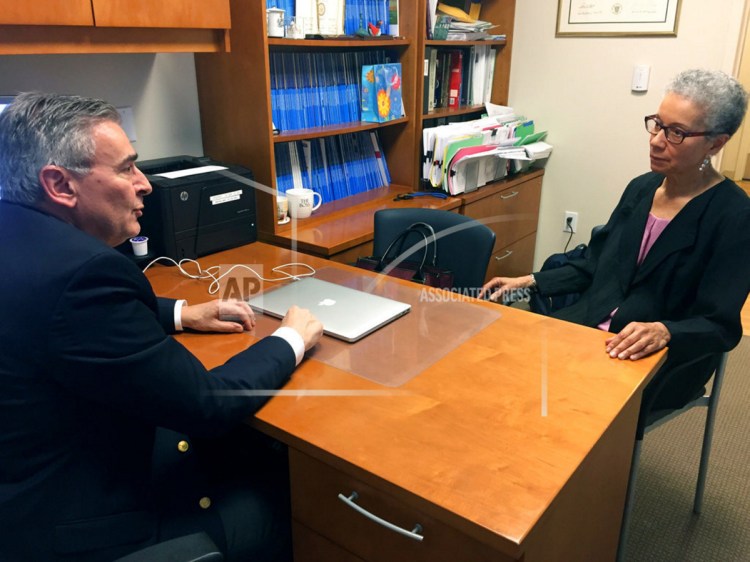Tens of thousands of patients diagnosed early each year with the most common type of breast cancer can now safely avoid chemotherapy treatment without worrying if it is the right choice, researchers say.
The findings, published Sunday in the New England Journal of Medicine, showed that 70 percent of women diagnosed with the common cancer that has not spread to the lymph nodes can forgo chemotherapy without risking their chance of recurrence or ability to be cured, said Loyola Medicine oncologist Dr. Kathy Albain, a co-author of the study and a member of the clinical trial’s steering committee.
“The study should have a huge impact on doctors and patients,” Albain said. “We knew we were overtreating a lot of women with chemotherapy, in our gut. We can de-escalate toxic treatments and do that with certainty.”
The study, which has been closely followed by many oncologists worldwide who have been using earlier findings to guide their treatment of patients since the study began in 2006, was praised by cancer research advocates as progress made possible by cutting-edge advances in genomics.
“I don’t get optimistic about a lot of things, but I’ve been very optimistic about this,” said Otis Brawley, chief medical officer of the American Cancer Society.
Brawley said that in addition to offering patients and doctors peace of mind about forgoing chemotherapy, the findings will prevent tens of thousands of breast cancer patients each year from the debilitating and harmful risks associated with the treatment, including hair loss, nausea, vomiting and being at risk for leukemia and congestive heart failure.
“Chemotherapy is no Shangri-La,” Brawley said. “We’re saving people these side effects.”
The study was centered on a 21-gene test performed on tumors that has been available for breast cancer patients since the early 2000s. The test examines genes from a patient’s breast cancer biopsy sample and allows doctors to assign a patient a “recurrence score” from 0 to 100, according to Loyola Medicine.
While previous studies demonstrated that patients with scores of 10 or lower did not need chemotherapy, and women with scores above 25 did require and benefit from chemotherapy, there was no conclusive research guiding patients and doctors on whether or not to undergo chemotherapy in cases with a tumor with a midrange score, according to the study.
“It’s a hard enough time for a woman, and they look at you and say, ‘I want to do what you think is best,’ and you have to say, ‘Unfortunately, you’re in a group where there’s uncertainty,’ ” Albain said. “Now I’m going to say, ‘Hey, you don’t need it. Look at these numbers; you’re going to be fine.’ ”
The study enrolled 10,273 women who had the most common type of breast cancer (hormone-receptor positive, HER2 negative) that had not spread to lymph nodes.
Patients were randomly assigned to receive hormone therapy or chemotherapy followed by hormone therapy.
The study found that for participants with gene test scores between 11 and 25 – especially among women ages 50 to 75 – there was no significant difference between the chemotherapy and no chemotherapy groups. Among women younger than 50, outcomes were similar when gene test scores were 15 or lower. Among younger women with scores 16 to 25, outcomes were slightly better in the chemotherapy group, the study reported.
Send questions/comments to the editors.



Success. Please wait for the page to reload. If the page does not reload within 5 seconds, please refresh the page.
Enter your email and password to access comments.
Hi, to comment on stories you must . This profile is in addition to your subscription and website login.
Already have a commenting profile? .
Invalid username/password.
Please check your email to confirm and complete your registration.
Only subscribers are eligible to post comments. Please subscribe or login first for digital access. Here’s why.
Use the form below to reset your password. When you've submitted your account email, we will send an email with a reset code.